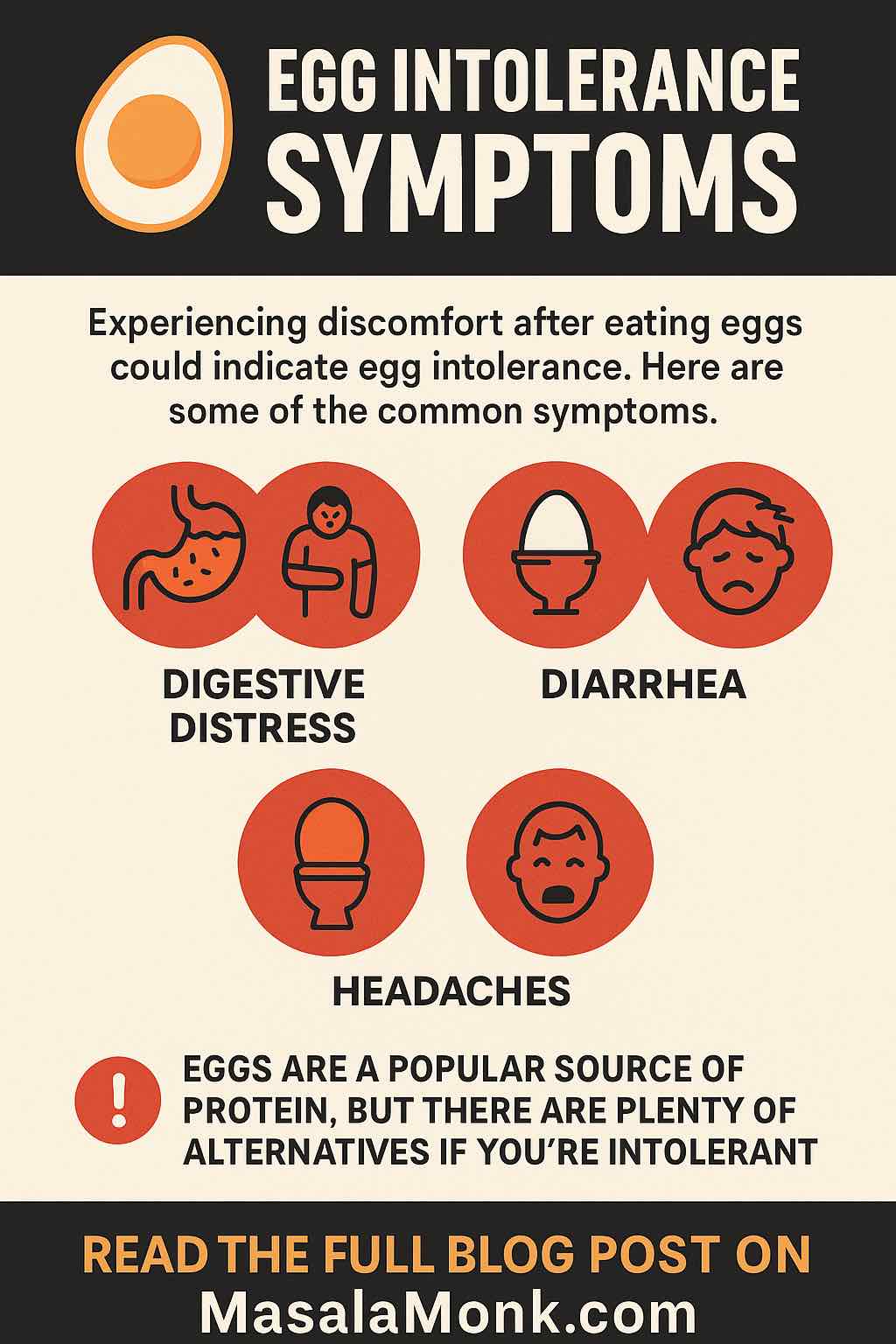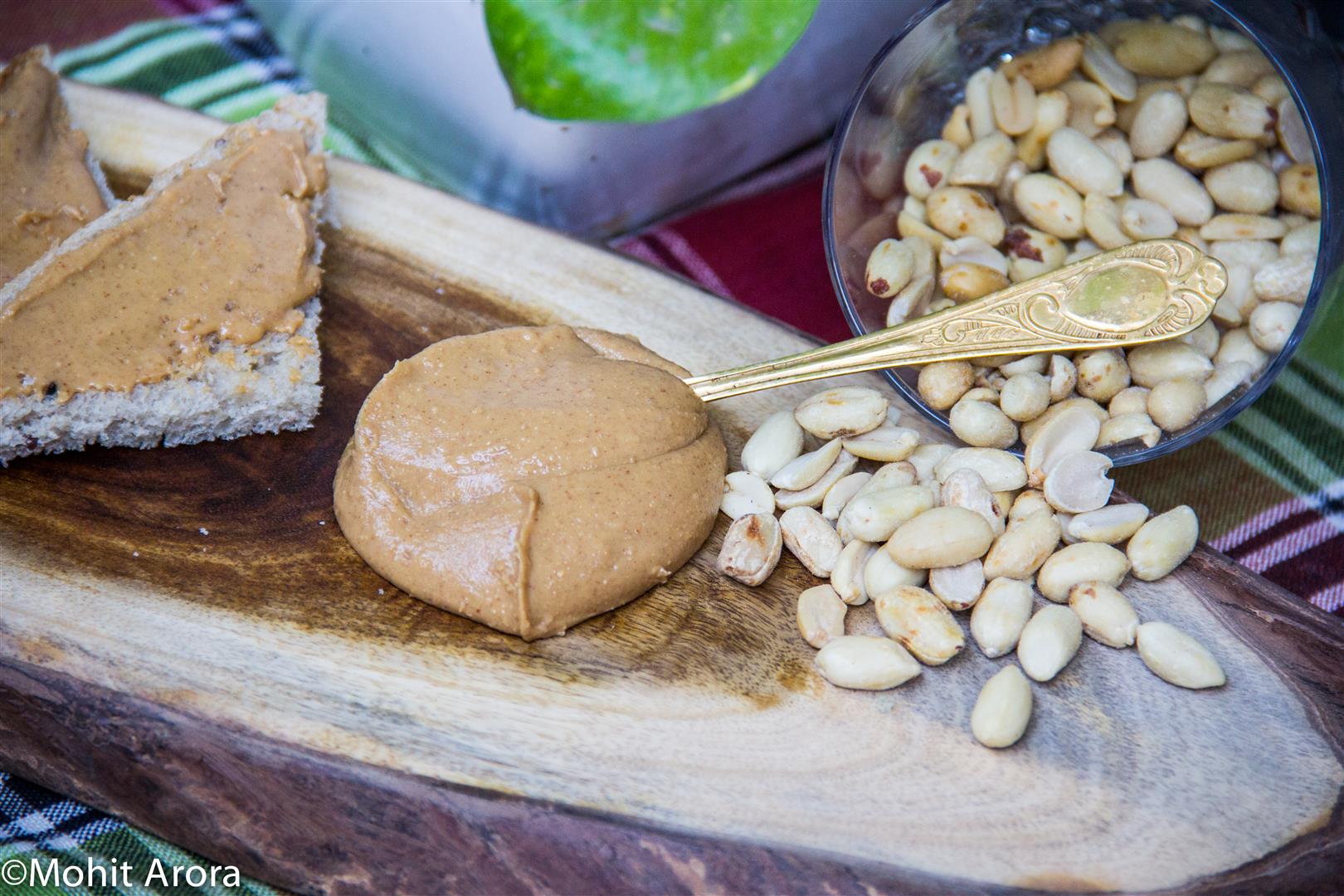
It’s morning. You’ve made yourself a protein-packed breakfast—scrambled eggs, maybe an omelet, or even just a slice of cake at brunch with friends. Hours later, you’re not feeling your best. There’s bloating, maybe stomach pain, some nagging fatigue, and a strange mental fog. You blame the coffee, the bread, your stress. But what if the eggs—that beloved kitchen staple—are the real reason your body is rebelling?
Egg intolerance isn’t just an “excuse” or a dietary trend. It’s a genuine (and often overlooked) food sensitivity that quietly affects countless people around the world, sometimes for years before they realize the connection. If you’ve been struggling with mysterious digestive troubles, low energy, or just a sense that something in your diet isn’t sitting right, it’s time to take a closer look at what egg intolerance really is, how it feels, why it happens, and—most importantly—what you can do about it.
Egg Intolerance vs. Egg Allergy: Getting Clear on the Difference
Before you start tossing your eggs out the window, it’s important to understand that egg intolerance and egg allergy are very different things. Allergy is dramatic and immediate—your immune system overreacts, sometimes causing hives, swelling, or even life-threatening anaphylaxis. If you want to understand those risks and symptoms, see our dedicated guide on Symptoms of Egg Allergy.
Egg intolerance, on the other hand, is more like your gut’s quiet protest. It doesn’t get the headlines, but it can still make you feel miserable—and because the symptoms are often delayed or subtle, it’s easy to miss the connection.
How Are the Symptoms Different?
| Egg Intolerance | Egg Allergy | |
|---|---|---|
| Onset | Hours to days after eating eggs | Minutes to an hour after eating eggs |
| Main Symptoms | Bloating, cramps, diarrhea, fatigue | Hives, swelling, trouble breathing |
| Severity | Annoying but rarely dangerous | Can be life-threatening |
| Immune System? | Not directly involved | Direct immune response (IgE) |
Key takeaway: Intolerance is about how you digest eggs, not about your immune system freaking out.
What Causes Egg Intolerance? Why Do Some People Suddenly React?
Eggs are considered one of the highest-quality proteins you can eat (What Is Protein?), but they also contain complex proteins (like ovalbumin and ovomucoid) that can be hard for some guts to break down.
Egg intolerance may develop for several reasons:
- Enzyme shortfall: Some people simply lack the enzymes to fully digest certain egg proteins.
- Histamine release (pseudoallergy): As recent research shows, certain egg white proteins can directly stimulate your gut’s mast cells, dumping histamine and causing what feels like an allergic reaction—abdominal pain, diarrhea, and more—without involving IgE antibodies. This can even happen in people who test negative for allergies.
- Gut health and inflammation: Underlying gut issues (like IBS, SIBO, or even stress-induced dysbiosis) can make you more likely to react to previously harmless foods—including eggs.
- Adult-onset sensitivity: Yes, you can develop egg intolerance suddenly as an adult, even after decades of enjoying eggs without issue. Medical literature is starting to recognize more adult-onset egg intolerances and even rare cases of late-onset allergies (Nature, 2024).
Egg Intolerance Symptoms: The Full (And Surprisingly Varied) List
1. Digestive Symptoms—Where Most People Notice Trouble
If you’re intolerant to eggs, your gut will be the first to complain. Symptoms usually surface within several hours, but sometimes up to 48 hours after eating:
- Bloating and Distention: Your stomach feels uncomfortably full, tight, or distended.
- Abdominal pain or cramping: From a dull ache to sharp, crampy pain.
- Excessive gas and flatulence: You may feel embarrassed but it’s a real sign of fermentation and digestive disruption.
- Diarrhea or loose stools: Sometimes sudden, sometimes the next day.
- Nausea or queasiness: Not always severe, but enough to disrupt your day.
- Stomach rumbling, indigestion, even vomiting: The more sensitive your system, the more severe the reaction.
Real-world note: Many people go years blaming bread, milk, or “stress” for these symptoms before connecting them to eggs.
2. Non-Digestive Symptoms—Egg Intolerance Goes Beyond the Gut
- Headaches or migraines: Especially those that seem to come out of nowhere a few hours after a meal.
- Fatigue, brain fog, and mood dips: You might feel inexplicably tired, foggy, or even a bit down after eating eggs—likely thanks to inflammatory compounds or a stressed gut-brain axis.
- Mild skin rashes or eczema flare-ups: While not as dramatic as allergy hives, some people notice itchy, irritated skin after eating eggs.
- Joint pain or swelling: For those with autoimmune conditions, eggs can sometimes worsen joint inflammation.
3. Rare but Noteworthy: Pseudoallergic and Adult-Onset Symptoms
Medical journals now document cases where egg white proteins (especially ovalbumin) cause “pseudoallergic” responses in the gut. That means:
- Histamine release causes GI pain and sometimes “allergy-like” symptoms, but allergy testing comes up negative.
- In rare, extreme cases, this can escalate to full-body symptoms that mimic allergy—but aren’t immune-mediated and almost never become life-threatening.
Recent case study: A 2024 report described a woman who could eat fully cooked eggs but reacted to undercooked or raw eggs with cramps and diarrhea. Advanced testing showed she was sensitive to just one egg protein—ovalbumin—allowing her to eat most baked goods but skip soft-boiled eggs and raw mayo (Frontiers in Allergy, 2024).
Why Are Symptoms Sometimes Delayed or Missed?
Egg intolerance can be insidious. Symptoms often don’t start for several hours—or even a day or two—after eating eggs. If you eat eggs regularly, you might always feel a bit “off” and never realize it’s the culprit.
Complicating matters, eggs are everywhere: breakfast foods, baked goods, noodles, sauces, even fancy coffee drinks (hello, eggnog lattes). Unless you keep a food and symptom diary, it’s very easy to miss the pattern.
How to Find Out If You’re Egg Intolerant: A Practical Roadmap
Step 1: Track Everything for 2 Weeks
- Keep a detailed food and symptom diary. Note what you eat, when you eat it, and how you feel for 1–48 hours afterward. Even jot down energy levels and mood.
Step 2: Eliminate All Egg Products
- For 2–4 weeks, cut out eggs entirely. This means checking ingredients for hidden sources: albumin, globulin, lysozyme, ovalbumin, and anything simply labeled “egg.”
- Remember: eggs hide in bread, pastries, mayonnaise, sauces, noodles, and many processed foods. If you need practical egg swaps, explore 10 Delicious Plant-Based Protein Sources for High-Protein Meal Prep.
Step 3: Reintroduce and Observe
- After your elimination phase, reintroduce eggs in a controlled way. Start with a small amount of fully cooked egg (baked or hard-boiled). Watch for symptoms over the next 24–48 hours.
- If symptoms return, that’s your answer. If not, you may only be sensitive to raw or undercooked eggs—test carefully, and consider advanced testing for specific protein sensitivities.
Step 4: Consult with Experts
- If your symptoms are severe or don’t resolve, see a gastroenterologist or registered dietitian. Sometimes intolerance is part of a broader digestive issue, and professional help can tailor the best plan.
Daily Life with Egg Intolerance: Tips for Thriving (Not Just Surviving)
1. Learn to Read Labels Like a Pro
Eggs lurk in places you’d never expect—pasta, bread, cookies, dressings, even coffee drinks. Key ingredients to look out for: albumin, globulin, lysozyme, and any mention of “egg.” Don’t be afraid to ask at restaurants or bakeries!
2. Reclaim Breakfast and Baking
Egg-free doesn’t mean joy-free. Swap eggs for mashed bananas, applesauce, flax or chia “eggs,” or commercial replacers. For protein, explore The Power of Tempeh: 10 High-Protein Plant-Based Meal Prep Ideas and 10 Plant-Based Meal Prep Ideas Using Quinoa.
3. Maintain Your Protein (And Nutrition)
Eggs are rich in protein, B12, and choline, but you don’t have to miss out. Discover how to eat 100 grams of protein a day without eggs. Nuts, seeds (Benefits of Nuts and Seeds), legumes, and tofu all pack a punch.
4. Cooked vs. Raw: Find Your Tolerance
Many with egg intolerance handle fully cooked or baked eggs far better than soft-boiled, poached, or raw forms. Cooking breaks down many problematic proteins. If you find you tolerate one and not the other, work with your nutritionist to personalize your approach. For more on the nutrition of different egg preparations, see Calories & Nutrition in Egg Whites.
5. Social Life: Communicate, Don’t Isolate
Eating out, visiting friends, or family gatherings can be stressful. Don’t be afraid to communicate your needs. If you’re hosting or attending a potluck, bring your own egg-free dish—no explanation needed.
6. Don’t Ignore Mental Health
Chronic food-related symptoms take a toll on your mental and emotional health. If you feel isolated or frustrated, you’re not alone. Share your experience or seek out online communities for connection and advice.
Deeper Dive: The Science of Egg Intolerance in 2025
Latest findings reveal:
- Histamine-mediated (pseudoallergic) reactions: Newer studies show some people’s digestive tracts directly react to egg white proteins by releasing histamine—causing abdominal pain, diarrhea, and even allergy-like symptoms without immune involvement (Wikipedia).
- Adult-onset cases: Recent case studies (2024) confirm that adults can suddenly develop an intolerance to specific egg proteins (e.g., ovalbumin), leading to symptoms only with certain preparations (like runny eggs but not baked ones) (Frontiers in Allergy, 2024).
- Impact on quality of life: Surveys show that living with egg intolerance can have significant social and emotional impacts—missing out on favorite foods, anxiety about eating out, and stress around social gatherings (Nature, 2024).
Is It Really the Eggs? Or Is It Something Else?
With all the hidden sources of discomfort in our diets, it’s easy to blame the wrong thing. Remember, eggs are just one possible culprit. If you find that removing eggs helps, but not completely, consider a broader approach to gut health and protein sources.
- If you’re worried about protein, read What Is Protein? and explore alternatives with 10 Delicious Plant-Based Protein Sources for High-Protein Meal Prep.
- Want to maximize muscle health while avoiding eggs? The Science of Protein: Maximizing Muscle Growth and Recovery has you covered.
Life Beyond Eggs: You Can Still Eat Well
Egg intolerance doesn’t have to limit your life. Some of the world’s healthiest cuisines are naturally egg-free, and with plant-based eating on the rise, you have more delicious options than ever. Need proof? Try 5 Turmeric and Moringa Smoothies for Weight Loss or explore Benefits of Eating Boiled Eggs at Night if you tolerate them.
And if you ever decide to add eggs back, you’ll know exactly what to look for, how to listen to your body, and how to adapt your nutrition.
Your Story Matters—Share Your Experience
Living with egg intolerance can feel isolating, but you’re not alone. Share your story, struggles, and wins in the comments—your insights could make all the difference for someone just starting their journey. If you have questions or want a personalized plan, don’t hesitate to reach out to a registered dietitian or join our community.
Keep exploring, keep learning, and remember: your health journey is yours to shape. And if you want a deep dive into egg allergies, check our guide on Symptoms of Egg Allergy. For more practical nutrition wisdom, high-protein recipes, and real-life tips, stick with Masala Monk.
FAQs: Egg Intolerance
1. What is the difference between egg intolerance and egg allergy?
Egg intolerance is a digestive problem where your body struggles to process egg proteins, leading to symptoms like bloating, gas, or diarrhea. Egg allergy is an immune response that can cause hives, swelling, and even life-threatening anaphylaxis. Intolerance symptoms are delayed and rarely dangerous; allergy symptoms are rapid and can be severe.
2. How soon after eating eggs do symptoms of intolerance appear?
Symptoms typically appear several hours to up to 48 hours after consuming eggs. This delay makes it tricky to pinpoint eggs as the culprit without careful tracking.
3. Can you develop egg intolerance later in life?
Yes. Adult-onset egg intolerance is possible—even if you’ve eaten eggs for years without trouble. Changes in gut health, enzyme production, or even gut inflammation can trigger new sensitivities.
4. Are egg whites or yolks more likely to cause intolerance?
Most cases involve sensitivity to proteins in egg whites (like ovalbumin). However, some people react to yolks, while others may only be sensitive to specific cooking methods (like raw or soft-cooked eggs).
5. Can I eat baked goods containing eggs if I’m egg intolerant?
Some people with egg intolerance can tolerate eggs that are well-cooked or baked, as heat denatures some of the proteins that trigger symptoms. Test your own tolerance carefully or consult a dietitian for guidance.
6. What are hidden sources of eggs in foods?
Eggs can be found in breads, pasta, mayonnaise, salad dressings, sauces, and processed foods. Look for ingredients like albumin, globulin, lysozyme, and ovalbumin on labels.
7. How is egg intolerance diagnosed?
There’s no single lab test. Diagnosis is usually made by keeping a detailed food and symptom diary, doing an elimination diet, and observing changes when eggs are removed and reintroduced.
8. Will removing eggs from my diet affect my nutrition?
Eggs are a great source of protein, vitamin B12, and choline, but you can get these nutrients from other foods. Include plant-based protein sources like lentils, tofu, tempeh, nuts, and seeds, and consider a multivitamin or B12 supplement if needed.
9. What should I do if I have a severe reaction after eating eggs?
If you experience trouble breathing, swelling of the lips/tongue, or a rapid heartbeat, seek emergency medical help immediately—these are signs of an allergic reaction, not intolerance.
10. Can egg intolerance be outgrown or reversed?
While children sometimes outgrow egg intolerance, in adults it’s less likely to disappear completely. However, some people find that healing their gut, managing inflammation, or changing how eggs are cooked can improve tolerance over time.












